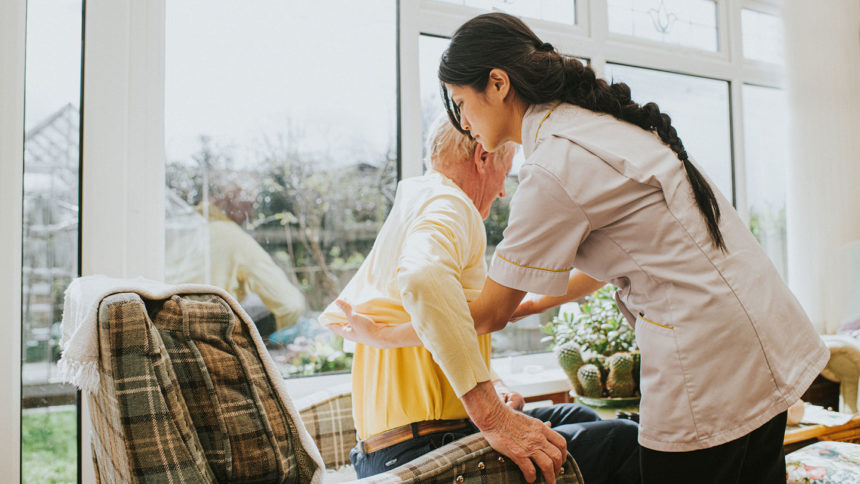
Significant weight loss in nursing home residents was an unintended consequence of COVID-19-related restrictions this spring, a new study has found. Flexibility for facility operators could help prevent these outcomes in future emergency situations, the researchers say.
Investigators analyzed weight data from residents in a 240-bed suburban Chicago facility from December 2019 through April 2020. The operator ceased all non-essential visits and replaced group meals with in-room delivery beginning in March, following guidelines from the Center for Medicare & Medicaid Services and state health officials.
From February to April, 67% of residents lost weight, and 23% lost over 5% of their body weight, reported Margaret K. Danilovich, Ph.D., from Northwestern University’s Feinberg School of Medicine.
Overall, residents weighed an average of 3.68 lbs less after the social distancing measures were put in place than they averaged in the three months beforehand.
The following disruptions may have had an affect residents’ food intake, the researchers said:
- Residents requiring assistance ate with a nursing assistant at staggered times. Intervals between meals were uneven, resulting in reduced appetite and consumption when meals were closer together than usual.
- Group activities ceased, and residents were encouraged to stay in their rooms. These changes reduced mealtime conversation and social interaction, which are known to support meal consumption.
- Family visits ceased, so residents did not receive outside food.
Social distancing slows disease spread but also can have adverse physical health effects on vulnerable older adults, Danilovich and colleagues concluded. A comprehensive social distancing strategy requires countermeasures, they contend. “Nursing homes must be diligent about weight monitoring and enriching care plans with nutritional and physical activity interventions to preserve non-lean and lean body mass.”
The researchers also propose creative measures to promote adequate food intake, such as training and engaging all staff in meal assistance — including administrators and activities staff. Family caregivers and volunteers could be recruited to assist as well. But Danilovich acknowledged that these measures may only be possible under new rules.
In the future, creating flexibility in certain CMS regulations may be in order, such as allowing larger spaces to be repurposed for physically distant group dining, or permitting private-duty caregivers to assist with feeding, she wrote.
A peer-reviewed article has been published as a pre-proof in JAMDA.




